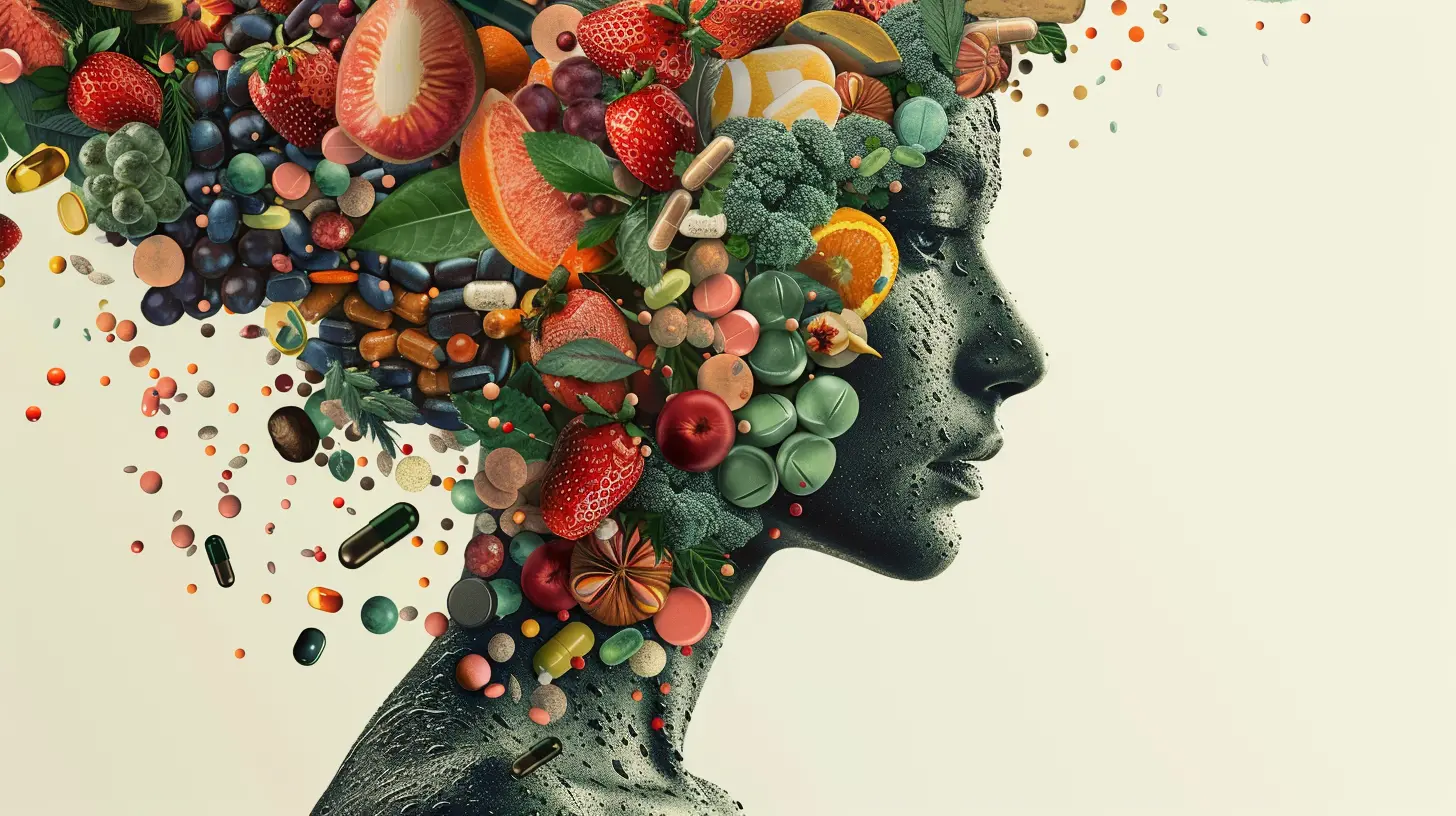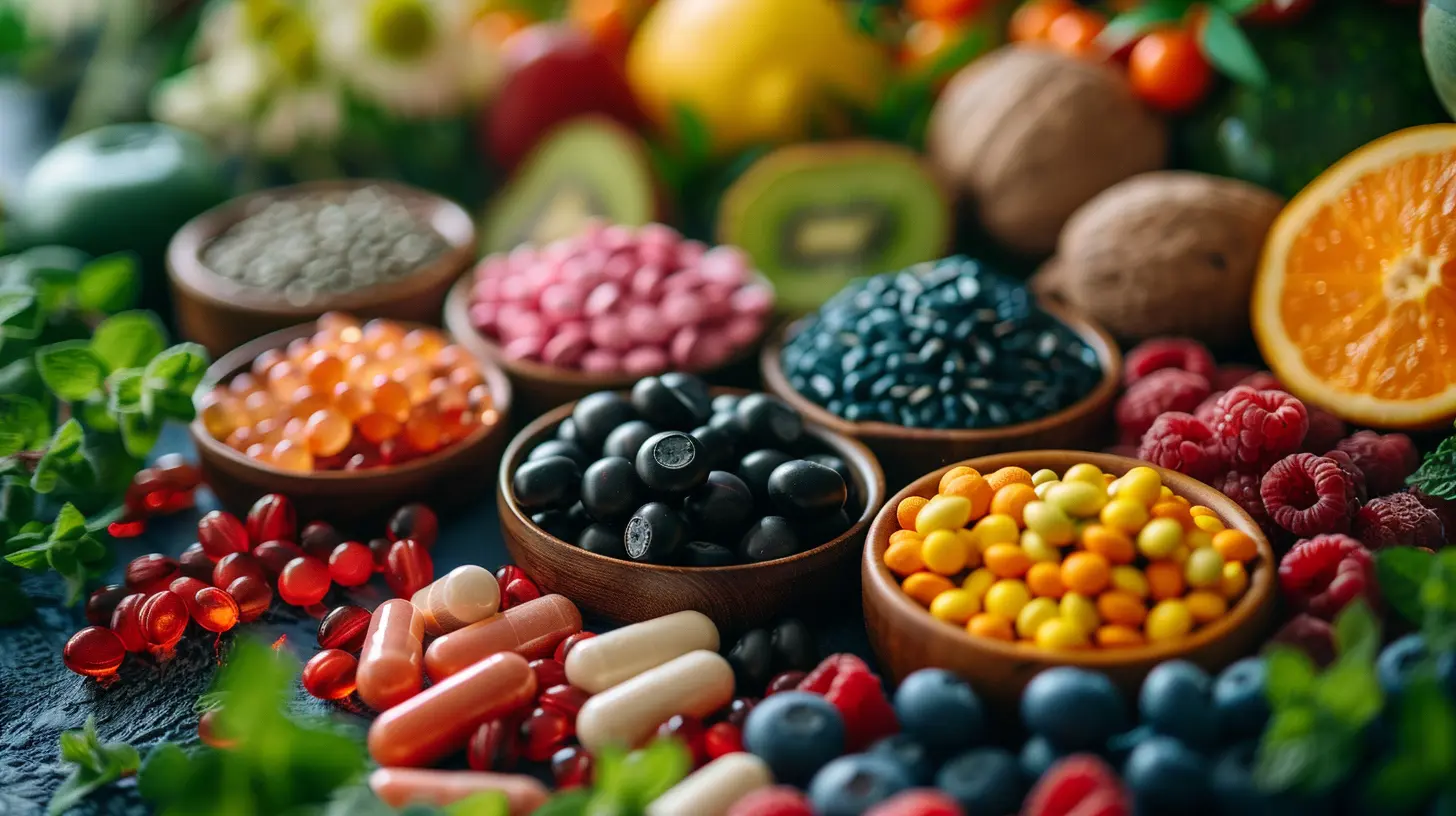Exploring the Connection Between Vitamin B6 and Mood Regulation
19 September 2025
If you've ever felt like your emotions are on a rollercoaster for no clear reason, it might be time to take a closer look at your nutrients—specifically, Vitamin B6. Yup, this often-overlooked vitamin plays a surprisingly big role in how you feel on a daily basis. We’re talking mood swings, anxiety, even depression—all potentially tied to this tiny but mighty nutrient.
So, if you're wondering how something as small as a vitamin could impact your brain and emotional well-being, you're in the right place. Let’s dive into the world of Vitamin B6 and figure out just how important it is for keeping your mood on the sunny side.
What Is Vitamin B6 Anyway?
Before we get into how it affects your mood, let's break down what Vitamin B6 actually is. Also known as pyridoxine, Vitamin B6 is one of the eight B vitamins that help your body convert food into energy. But that’s just scratching the surface.This vitamin helps with over 100 enzyme reactions in the body. It's involved in protein metabolism, cognitive development, immune function, and—you guessed it—neurotransmitter production.
In simple terms? Vitamin B6 is one of those backstage crew members that keeps everything running smoothly. You might not notice it when it’s doing its job well, but you’ll definitely feel the difference when it’s lacking.
The Brain-Vitamin Connection
So how exactly does Vitamin B6 tie into your brain chemistry?It all comes down to neurotransmitters—those little chemical messengers that help your brain cells communicate. You've probably heard of serotonin (the “feel-good” chemical), dopamine (the motivation and pleasure guy), and GABA (the calming one). Well, B6 helps your body produce all three.
Let’s just say your brain’s emotional weather forecast depends a lot on this vitamin.
Without enough B6, your body can't manufacture these neurotransmitters effectively. That can lead to feelings of irritability, fatigue, anxiety, and even severe depression over time. It’s like trying to host a party without sending out any invites. Not much fun, right?
The Role of B6 In Serotonin Production
Now, let’s zoom in on serotonin for a second.Serotonin is often called the “happy hormone” because it helps regulate mood, sleep, and even appetite. If you’ve ever taken a walk in the sun and instantly felt a little more upbeat, part of that was your serotonin talking.
Here’s the cool part: serotonin is made from an amino acid called tryptophan. But your body can’t convert tryptophan into serotonin without—you guessed it—Vitamin B6.
So, if you're low on B6, even if you're getting enough tryptophan from your diet (think turkey, eggs, nuts), that conversion might not happen as effectively. And without serotonin? Say hello to mood swings, anxiety, or even the blues.
Dopamine and B6: The Motivation Duo
Dopamine is another big player in mood regulation. It’s the chemical that drives your pleasure-reward system. That feeling of accomplishment after finishing a workout? That’s dopamine. The kick you get from checking off your to-do list? Dopamine again.Vitamin B6 helps in the synthesis of dopamine by supporting the conversion of L-DOPA (its precursor) into dopamine. When there’s a B6 deficiency, dopamine levels can drop—and with it, motivation and focus.
Ever felt “blah” for no reason? That could be your brain crying out for more B6.
B6 and GABA: The Anxiety Calmer
Let’s not forget GABA (gamma-Aminobutyric acid), the brain’s primary calming neurotransmitter. Think of GABA as your built-in stress-relief system—it helps reduce nerve excitement and keeps you from feeling overly wired or anxious.B6 is essential for producing GABA. Without enough of it, GABA levels can dip, leading to restlessness, anxiety, even sleep disturbances. It’s like trying to chill out without having a comfy couch to relax on. Not great.
Signs You Might Be Low in Vitamin B6
Honestly, many of us don't even realize we're low in Vitamin B6. Our bodies don’t produce it on their own, so we rely entirely on diet or supplementation to meet our needs.Here are some sneaky signs that you might not be getting enough:
- Mood swings or irritability
- Anxiety or nervousness
- Depression or low mood
- Fatigue or brain fog
- Trouble sleeping
- Tingling in hands and feet (in severe cases)
Sound familiar? You’re not alone. Many people—especially those with high levels of stress, poor diets, or certain medical conditions—are at risk of B6 deficiency.
What Causes a B6 Deficiency?
So why would someone become deficient in B6 in the first place?There are a few key culprits:
1. Poor Diet: If your meals lack variety or rely heavily on processed foods, you're probably missing out on essential vitamins, B6 included.
2. Alcohol Consumption: Excess alcohol can interfere with B6 absorption and increase its excretion.
3. Certain Medications: Some medications, like birth control pills, anti-TB drugs, and certain antibiotics, can deplete B6 levels.
4. Chronic Health Conditions: Conditions like kidney disease, liver disease, or autoimmune disorders can mess with B6 metabolism.
5. Age and Hormones: As you age, your body might not absorb B6 as efficiently. Hormonal changes, especially in women, also play a role.
Best Food Sources of Vitamin B6
Now for some good news: getting B6 from food is totally doable—and delicious!Here are some top food sources to add to your grocery list:
- Bananas
- Chicken breast
- Turkey
- Tuna
- Salmon
- Spinach
- Potatoes
- Fortified cereals
- Chickpeas
- Avocados
- Sunflower seeds
Pro tip: Cooking food can reduce its B6 content, so try to eat a mix of raw and cooked options if you can.
How Much B6 Do You Actually Need?
The Recommended Dietary Allowance (RDA) for Vitamin B6 varies slightly by age and gender, but here’s a quick guide:- Adults (19–50 years): 1.3 mg/day
- Men 51+: 1.7 mg/day
- Women 51+: 1.5 mg/day
- Pregnant women: 1.9 mg/day
- Breastfeeding women: 2.0 mg/day
Most people can hit these targets through a balanced diet. But if you're experiencing mood-related symptoms or fall into a higher risk category, you might want to talk to a healthcare provider about supplements.
Do B6 Supplements Help With Depression and Anxiety?
Let’s address the million-dollar question: Can B6 supplements actually improve mood or treat depression and anxiety?The short answer? They might help—especially if you're deficient.
Some studies suggest that supplementing with B6 can ease symptoms of mild depression and anxiety, particularly when combined with other B vitamins like B12 and folate.
But remember, B6 isn’t a magic pill. It won’t cure clinical depression or replace therapy or medication. Think of it as one tool in your mental wellness toolkit. Balanced nutrition, exercise, sleep, and emotional support still play huge roles.
Can You Overdo It on B6?
Yes, and it’s important to mention that too much of a good thing can be harmful. Vitamin B6 is water-soluble, meaning your body typically flushes out the excess. But in very high doses—usually from supplements—it can cause nerve damage.Stick to the recommended levels unless a doctor advises otherwise. Taking more than 100 mg per day over long periods is generally not recommended.
Final Thoughts: The Mood-Vitamin Bridge
So, where does all this leave us?Vitamin B6 might not be the flashiest nutrient, but it punches way above its weight when it comes to mental health. By supporting neurotransmitter production—like serotonin, dopamine, and GABA—B6 plays a major role in keeping your mood steady and your mind calm.
If you’ve been feeling emotionally off-balance lately, it could be worth evaluating your diet and lifestyle. Are you eating enough B6-rich foods? Are stress and poor habits draining your stores?
Sometimes, the difference between a stormy day and a sunny one isn’t in your circumstances—it’s in your chemistry.
Quick Tips to Boost Your Vitamin B6 Naturally
- Eat more whole, unprocessed foods- Add B6-rich items like bananas, chickpeas, and poultry to your meals
- Limit alcohol
- Talk to your doctor before starting any supplement
- Consider a B-complex if you’re under a lot of stress
A happier, more balanced version of you could just be a vitamin away.
all images in this post were generated using AI tools
Category:
VitaminsAuthor:

Arthur McKeever
Discussion
rate this article
1 comments
Zeno Shaffer
Great article! It's fascinating how Vitamin B6 can influence mood. Incorporating foods rich in this vitamin could be a simple yet effective way to support mental health.
September 25, 2025 at 4:43 AM

Arthur McKeever
Thank you! I'm glad you found the article insightful. Indeed, incorporating Vitamin B6-rich foods can be a valuable addition to supporting mental health.


